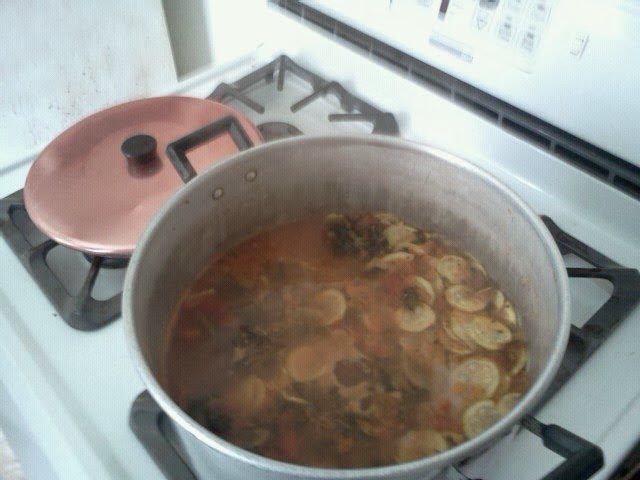Though I long to stay in bed, I force myself up and out of my soft, warm, flannel cocoon. It is a kind of a test: am I well enough to work today—to cook and do housework?
This is the way I have lived my life in the sick zone since becoming a mom. If my hands and legs respond to basic commands, I’m well enough to be up. If not, not. You just can’t tell from a prone position.
So today, on the day that the soup ran out, I test my limits, moving with slow caution to see what I can do, what I will do, because will has everything to do with it. The phrase, “weak as a kitten,” comes to mind without much thought about what this actually means. Is a kitten weak? Do I care?
The soup has run out and I need soup, as any mom knows, and I’m a mom and surely know this. I need soup to get well—to get back the strength that will get me back into the workforce, where I need to be. Back at my desk at Kars for Kids and also at my other full time position: Resident Mom.
So working by rote, I gather the ingredients I need to get well: a can of chopped tomatoes and one of kidney beans, an onion, 6 cloves of garlic, and a red bell pepper. Squash and carrots and potatoes, too. I know what I need because I’ve made this soup so many times I can put it together in under an hour with no thought whatsoever.
 |
| (photo credit: Moshe Epstein) |
 |
| (photo credit: Moshe Epstein) |
 |
| (photo credit: Moshe Epstein) |
 |
| (photo credit: Moshe Epstein) |
It’s not art in the bowl. Not like my chicken soup which is practically speaking an all-day process. But it’s good, it’s healthy, and it warms me from the inside out.
I ladle out a bowlful and breathe in the steam. “This will make me well,” I think. And there is satisfaction in knowing that the power was in my own two hands, all along.
Minestone
Ingredients:
• 1 red pepper• 1 onion
• 6 cloves garlic
• 3 Tablespoons olive oil
• 3 carrots
• 3 potatoes
• 3 vegetable marrows or zucchini (kishuim in Hebrew)
• Frozen chopped spinach
• 1 can chopped tomatoes (agvaniot kubiot in Hebrew)
• ½ teaspoon crushed red pepper
• 3 liters vegtetable stock or parve chicken soup (marak adif in Hebrew)
• ½ cup broken spaghetti or other pasta
• 1 teaspoon oregano
• ½ teaspoon basil
• ¼ teaspoon thyme
• 1 can kidney beans, rinsed, drained
• Grated cheese for serving
Method:
1. Chop in food processor or by hand, the garlic, onion, and red pepper. Sauté on medium heat in olive oil until onion is translucent.
2. Chop carrots and thinly slice potatoes and vegetable marrow either in food processor or by hand. Add to pot along with 3 liters of vegetable stock or 3-4 heaping soupspoons of soup powder and 3 liters boiling water), a handful of frozen chopped spinach balls (I like the type that is frozen in clumps), the canned tomatoes, and the crushed red pepper.
3. Bring to a boil, then turn heat down and cook, covered, for 30 minutes to 45 minutes or until potato slices are almost tender.
4. Add pasta and herbs. Turn heat up and cook until pasta is al dente. Add beans.
5. Serve with grated cheese.

.jpg)
.jpg)